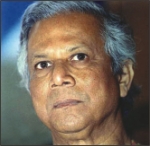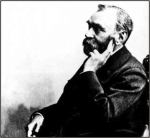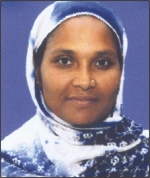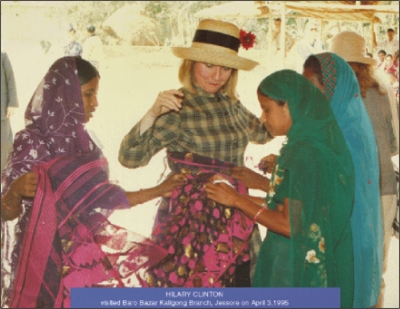 |
||||||||||
It is this question that we must answer with courage and fortitude so that we can really discover the reasons that holds us back. Prof. Yunus has proven over and over again that given leadership, commitment, honesty of purpose, vision and persistence we Bangladeshis can overcome all obstacles however insurmountable it may appear at the outset. We share that faith of our Nobel laureate and have dedicated ourselves to pursue the same end. Prof. Yunus and The Daily Star have had a long partnership of highlighting what Bangladesh was and is capable of. Within months of our launch we started following the work of Grameen Bank and its founder. We ran several stories followed by a full-page interview of Prof. Yunus in December 1992 taken by Mr. S.M.Ali and a team of his colleagues. In a special write up the Star's founding editor wrote that Prof. Yunus should be given a Nobel Prize for his work. It was also in 1992 that Bill Clinton, then a presidential candidate, who proposed a Nobel Prize for Prof. Yunus. In our special supplement today we reproduce that historic interview and the write up of S.M. Ali. We also declared Prof. Yunus The Daily Star “Man of the Year” in 1995. We also reprint a piece that Prof. Yunus had written for us at that time. We take this glimpse of the past to show that Prof. Yunus' Nobel Prize was long overdue and that it has been our privilege to highlight him and his work from our very inception. Our heartiest congratulations to Prof. Yunus and The Grameen Bank. May their example give us a new confidence to build a Bangladesh of achievements and dignity. The man behind the Nobel Prize Britt F Hagstrom Today the best-known prize in the world has a magic that certainly not even its originator, Swedish inventor Alfred Nobel (1833-1896), could have imagined when he wrote his will in 1895.
At the happy event of the 2006 Nobel peace prize having been awarded Professor Mohammed Yunus and the Grameen Bank I wish, on behalf of myself and the Swedish Embassy in Dhaka, to extend my warmest congratulations to the recipients of the Peace Prize. The man behind the prize, Alfred Nobel, is perhaps not as well known as the prize itself. I would like to take this opportunity to share with you some information about the person and life of Alfred Nobel compiled by Ingmarie Froman on behalf of the Swedish Institute. Nobel was born in Stockholm in 1833. When he was nine years old, the family moved to St. Petersburg, Russia. His father, Immanuel, was an inventor and had built up a successful company there. Immanuel's sons followed in his footsteps. Alfred's brothers developed oil wells in Baku (now in Azerbaijan) and eventually dominated the European oil industry, while he became one of the world's most creative inventors and industrialists. In the 1860s he returned to Sweden and continued his experiments. Sometimes at a very high price, as in 1864 when his brother Emil and several other associates died in an explosion in Stockholm. In 1866 Nobel finally succeeded in inventing a powerful explosive that could be handled without excessive risk. He himself named this new invention dynamite. Dynamite made him both famous and wealthy, but Nobel did not rest. He built up a corporate empire in Sweden and more than 20 other countries and continued with his laboratory experiments. When he died in 1896, he owned 355 different patents. Among other things, he also succeeded in making artificial silk. “Europe's richest vagabond” Childless millionaire But to everyone's surprise, aside from small bequests, Nobel willed his entire realizable estate to a fund that has been known since 1900 as the Nobel Foundation. His donation amounted to nearly SEK 32 million in the Swedish kronor of that time. According to Nobel's wishes, the return on this fund should be distributed in the form of annual prizes to those who “have conferred the greatest benefit on mankind” in the fields of physics, chemistry, physiology or medicine, literature and peace. In principle, the Nobel Prizes can be awarded to anyone in the world, a sensational concept in the late 19th century. Members of Nobel's family protested and tried to have the will declared invalid. But exactly five years after his death, on December 10, 1901, the first Nobel Prize Award Ceremonies took place in Stockholm and in Oslo, capital of Norway. When Nobel wrote his will, Sweden and Norway were linked by a union, which was dissolved in 1905. He thus decided that the Peace Prize would be awarded in Oslo and the other four prizes in Stockholm. After the problems of its first years, the reputation of the Nobel Prize quickly grew. Today the names of all Nobel prize-winners (or laureates) are revealed every October, about two months before the award ceremony on December 10. The Nobel Prizes in Physics and Chemistry are awarded by the Royal Swedish Academy of Sciences in Stockholm. Laureates in Physiology or Medicine are selected by Karolinska Institutet, a medical university in Stockholm. The Swedish Academy is responsible for the Literature Prize, and the Peace Prize is awarded by the Nobel Committee of the Norwegian parliament (Storting) in Oslo. Global media circus In world media, the prize announcements in October are a bigger event than the Nobel Festivities on December 10. Journalists around the world write detailed presentations of the prize-winners and their contributions. After the ceremonies today in Norway Professor Yunus an Mr Dipal Chandra Barua, Deputy director of Grameen Bank will travel to Sweden to meet the other Nobel laureates. They will also have meetings representatives from the Swedish Government, the Parliament, Swedish Development Cooperation Agency. Sida etc. An audience is also given by His Majesty the King of Sweden at The Royal Palace. Sweden looks forward to welcome Professor Yunus and representatives of the Grameen Bank. Britt F Hagström is Ambassador of Sweden to Bangladesh Taslima to receive the prize for Grameen Bank A Grameen Bank borrower, owners' representative and member of Board of Directors Ms Taslima Begum will receive the Nobel Peace Prize on behalf of Grameen Bank today at City Hall, Oslo. It may be noted here that Dr Muhammad Yunus and his institution Grameen Bank have been jointly awarded the Nobel Peace Price this year. Ms Taslima Begum is a member of Grameen Bank Board of Directors, Centre No. 02/Ma, Dhainagar, Shibganj Thana, Rajshahi zone.
She observed many like her in the area had changed their lot through small business, poultry rearing etc. borrowing the investment money from Grameen Bank. So, she also contacted her village centre of Grameen Bank and became a member on 02 May, 1992. Taslima Begum is a 15th time borrower. First time she took Tk. 1500/= common credit. She opened a watch repairing shop for her husband with the bank loan. She used to grow vegetable and rear poultry at her own house. She has taken loan of about Taka two lakh up to now in phases. At present her easy credit amounts to Tk. 5000/-. She now owns a Mishuk autorickshaw. Her mango orchard on one bigha land provides her a yearly profit of taka 2,000/=. Besides, her pisciculture provides Tk. 30000/- as profit per year. She is a well to do person now. How elected member of Board
|
||||||||||
© thedailystar.net, 2006. All Rights Reserved
 T
T Perhaps Nobel would be horrified by the fuss and global media circus his prizes now awaken every autumn, since he himself was a tirelessly working and reserved man. With his donation, he mainly wanted to reward contributions that “have conferred the greatest benefit on mankind.”
Perhaps Nobel would be horrified by the fuss and global media circus his prizes now awaken every autumn, since he himself was a tirelessly working and reserved man. With his donation, he mainly wanted to reward contributions that “have conferred the greatest benefit on mankind.”  She was born to a poor family. She could not proceed beyond class V at school due to family hardship. She was given in early marriage. But her husband's household was also financially constrained, without any land and he was unemployed.
She was born to a poor family. She could not proceed beyond class V at school due to family hardship. She was given in early marriage. But her husband's household was also financially constrained, without any land and he was unemployed.